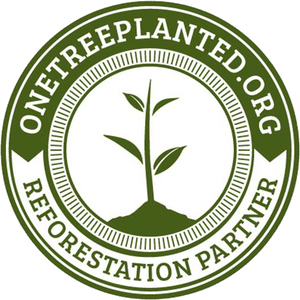

The science of Happi
The best way to live happier is to understand how. It’s a science, and we’re diving right in.
The best way to live happier is to understand how. It’s a science, and we’re diving right in.


01
Air pollution is no joke.
Our air isn’t as clean as it looks (just kidding, we know you can’t see air). It’s full of pollutants, allergens, and molds, so small, they’re often undetectable. These tiny particles are called fine particulate matter (PM2.5), and fortunately we have the EPA and their trusty scientists to measure these particles and determine the Air Quality Index for us. The AQI measures local air quality so you know when you’re at risk, like near a wildfire or in a crowded city.
Sometimes, if the AQI levels are high, you can see the PM2.5 (they make the air look hazy). But whether or not you see them, they’re there — and they’re kind of the worst.
02
The quality of our air affects the quality of our lives.
Long story short, particulate matter is pollution and pollution is damaging our bodies. This can take place in short-term problems like pollen or dust allergies, headaches from strong odors, difficulty breathing during exercise, or disturbed sleeping.
Long-term exposure to particulate matter may affect your health, and outdoor pollution can wander its way indoors. Health experts are continually researching short and long term effects of particulate matter exposure in communities around the world.*
Ongoing carbon pollution, wildfires, and changing weather patterns are only making our air quality worse.
*The Journal of the American Medical Association (March 6, 2002---Vol 287, No. 9)03
HEPA air purifiers really work.
For a happier world
A clean world goes far beyond the walls of our offices and homes. It starts with our planet. That’s why, through our partnership with One Tree Planted, we’re helping to plant trees where they’re needed most.
Every Happi purchase plants one tree, and together, we can plant a forest.
Because trees help clean the air we breathe, too. Through their leaves and bark, they absorb harmful pollutants and release clean oxygen for us to breathe. They absorb pollutant gases like nitrogen oxides, ozone, and carbon monoxide, and sweep up particles like dust and smoke, too. Most importantly, they help offset the increasing levels of carbon dioxide caused by deforestation and fossil fuel combustion — helping reduce the effects of climate change.
That’s not all trees do, either. They filter the water we drink, provide homes for over 80% of the world's terrestrial biodiversity, prevent harmful erosion, absorb harmful carbon from the atmosphere, and are key ingredients in 25% of all medicines.
This sustainable tree farming partnership also helps provide meaningful work and resources for other communities, too.
So, it’s really much more than clean air. It’s a better world.


